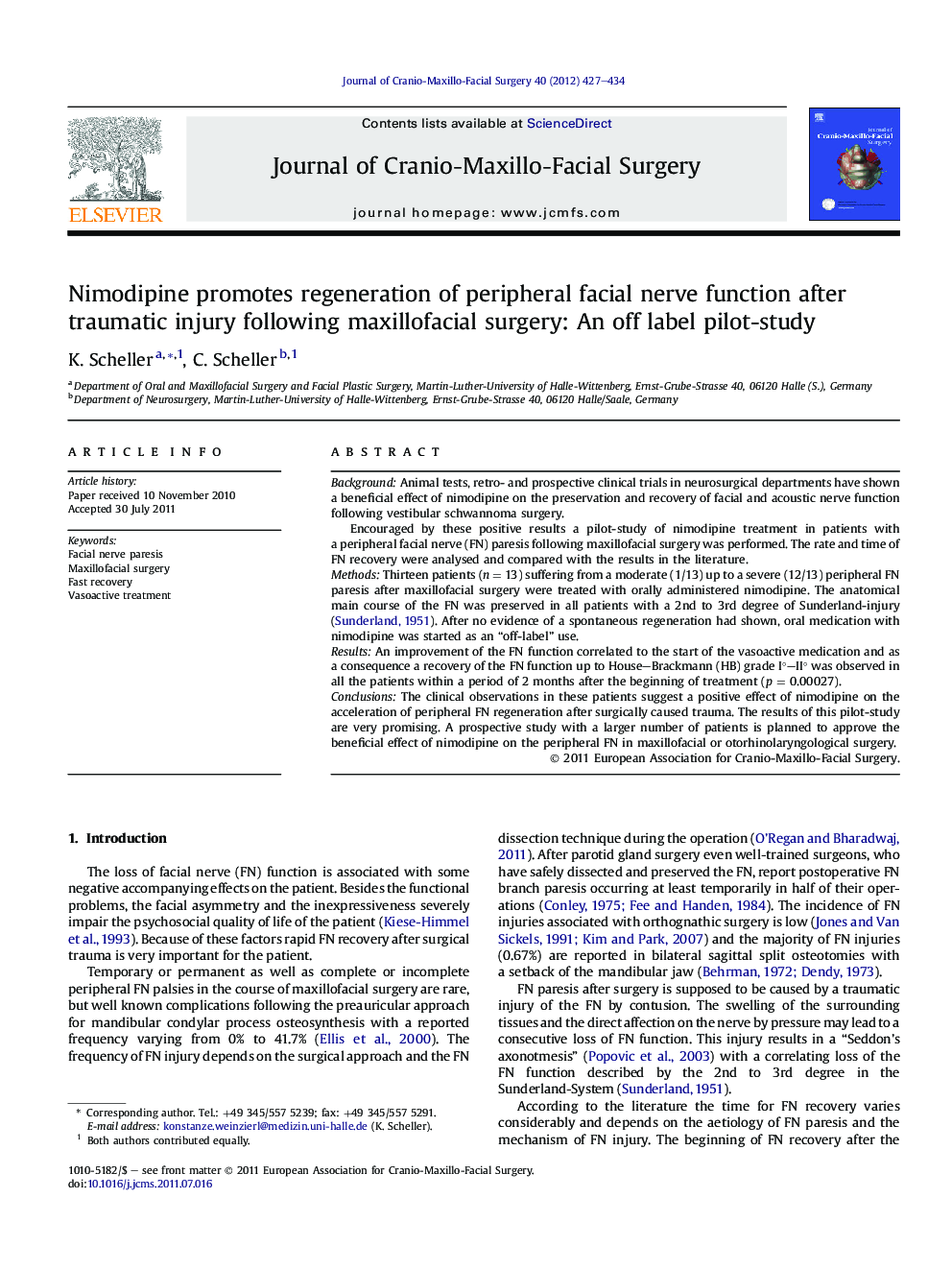| Article ID | Journal | Published Year | Pages | File Type |
|---|---|---|---|---|
| 3143478 | Journal of Cranio-Maxillofacial Surgery | 2012 | 8 Pages |
BackgroundAnimal tests, retro- and prospective clinical trials in neurosurgical departments have shown a beneficial effect of nimodipine on the preservation and recovery of facial and acoustic nerve function following vestibular schwannoma surgery.Encouraged by these positive results a pilot-study of nimodipine treatment in patients with a peripheral facial nerve (FN) paresis following maxillofacial surgery was performed. The rate and time of FN recovery were analysed and compared with the results in the literature.MethodsThirteen patients (n = 13) suffering from a moderate (1/13) up to a severe (12/13) peripheral FN paresis after maxillofacial surgery were treated with orally administered nimodipine. The anatomical main course of the FN was preserved in all patients with a 2nd to 3rd degree of Sunderland-injury ( Sunderland, 1951). After no evidence of a spontaneous regeneration had shown, oral medication with nimodipine was started as an “off-label” use.ResultsAn improvement of the FN function correlated to the start of the vasoactive medication and as a consequence a recovery of the FN function up to House–Brackmann (HB) grade I°–II° was observed in all the patients within a period of 2 months after the beginning of treatment (p = 0.00027).ConclusionsThe clinical observations in these patients suggest a positive effect of nimodipine on the acceleration of peripheral FN regeneration after surgically caused trauma. The results of this pilot-study are very promising. A prospective study with a larger number of patients is planned to approve the beneficial effect of nimodipine on the peripheral FN in maxillofacial or otorhinolaryngological surgery.
